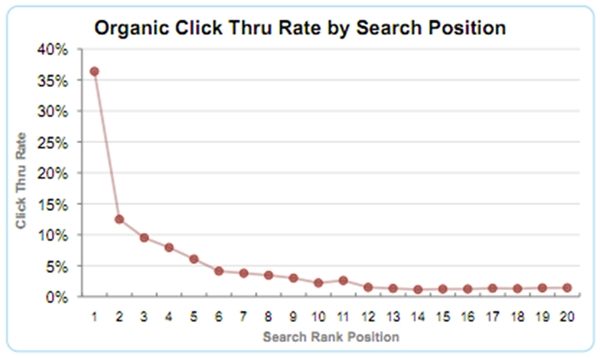Ironically, the reputation management industry has an image problem: Several companies have been shut down by prosecutors, and others apparently struggle because of complaints from past clients who claim the services provided by those agencies were a scam.
Yet (and this is not bragging) some four years and 100 mandates (commissioned work) into our online reputation management (ORM) efforts, driven almost exclusively by word-of-mouth, our team has not suffered the same fate. Why?
I have decided it's time to pull an Elon Musk and share the blueprints of our successful efforts. Although we've shared bullet points in the past on our website in an infographic, I have never publicly revealed key details—the stuff that's not on that chart, not anywhere, not even presentations at conferences.
From an agency standpoint, I view ORM in three stages: pre-mandate, process during the mandate, and reporting.
Most of takeaways for marketing professionals who don't work at ORM agencies lie with the first two stages. Here are nine such takeaways.
Takeaway 1: Your ethics matter
Most problems arise when in your capacity as a reputation manager you cross a legal or ethical line. In the pre-mandate stage, you have a fundamental choice: to accept or reject the potential client, including on the basis of ethical concerns. So, before deciding to take on a mandate, you must learn as much as you can about the clients and their motivations.
Takeaway 2: Don't let the client test legal boundaries
Next, what does the client expect you to do? US customers sometimes call us because we are in Canada and they think we can get around FTC rules regarding fake reviews. In fact, fake reviews were the cause of most of the reputation management agencies that I referenced earlier. The FTC works with ICPEN, which is a network of consumer protection authorities from nearly 60 countries that engage in cross-border cooperation. ICPEN's guidance, like that of the FTC, reflects basic truth-in-advertising principles.
Takeaway 3: There is a correct way to solicit reviews
Endorsements must be truthful and not misleading, and there must not be a material connection between endorser and the provider of the product or service. The three key elements the authorities are interested in is the fair collection of reviews, the moderation of reviews, and issues of transparency. Accordingly, we help clients only if they allow us to engage in conversations with their clients. That approach, however, will not work in situations where there are HIPAA compliance issues, but you can solicit fair and legal reviews for many e-commerce firms and service providers.
Takeaway 4: Suppression timelines must be realistic
Most clients engage us to do suppression work—i.e., suppressing negative online information, such as in search engine results. Suppression work is difficult, and we don't take on clients if negative search results have "metastasized" over six months. In general, it would take exponentially longer to suppress something negative with something positive. So, if the client did not get to us immediately, it's bye-bye.
Takeaway 5: Invest in good content
No matter how much onsite or offsite SEO you do, no matter how much crowdsourcing and engagement you can mimic, at the end of the day the campaign work must stand on its own. You can suppress negative content with positive content, but it must be good content. People must want to read that article, engage with it, write comments, email it to friends, link to it on blogs. So don't forget video, because good video can enhance your reputation in many ways. Most of our clients would not need ORM if they did not have poor content—a cardinal sin in digital marketing.
Takeaway 6: Understand the incremental return
When we first started at Searchreputation.net, a campaign manager for someone running for a seat in the Senate once called me and asked how quickly I can bury the negative stories about a politician "on the10th page of Google." When I told him the amount of labor and man-hours required, I never heard from him again. People overshoot with their expectations because they simply do not know the basic statistics. Our job early on is to explain this simple chart:

That will usually resolve the ROI expectations of the client. In reputation management, if you do not understand the exponential drop and the low incremental return of trying to suppress things beyond page 2, you will not be a good ORM project manager.
Takeaway 7: Link-building know-how is vital
All our suppression projects have an SEO phase. The most critical part of that is building links to assets, but not all assets can support the same link velocity. We use a list of 300+ UGC sites, like Facebook and LinkedIn, that can be pushed up the ranks with a rush of links and some content updates on a weekly basis. But microsites and blogs need special consideration; they must be vetted (especially while Google has them in the sandbox the first six months) by other influential bloggers and news sites; and some .gov and .edu is also important to get these sites to jump out of the gate. Domain names are also still very important: You can take advantage of many new top level domain suffixes, but many reputation management companies have not yet caught on.
Takeaway 8: Look out for "black PR" warfare
Do full audits—in and out of the digital space. That's the hard lesson we learned years ago when we ended up dealing with organized crime syndicates and found ourselves in the middle of a "black PR" war. It was a painful lesson. We now know to probe clients about possible third-party interests who want to undo your work... because it is easy to hire bitcoin-paid mercenaries or hacks to undo ORM efforts. If you do work in an agency, I would strongly advise you to know whom you are really dealing with. What other motives might be out there for wanting these rankings? And if you are commissioning reputation management work, do not outsource it to a third-world jurisdiction.
Some audits reveal counter-parties (those who have an interest in seeing a search result with high prominence stay that way) or a natural obsession with negative results (those who have a morbid curiosity, who go back to search, click on, and engage with an item that you want to suppress from a reputation management standpoint). Google's latest algorithm, called RankBrain, understands that type of behavior and keeps negative results at higher ranks.
The presence of counter-parties, such as disgruntled employees, people with personal vendettas, even unethical competitors, also means you cannot use certain strategies over others. Many clients request a Wikipedia page, for example; however, detection by counter-parties would make that a dangerous strategy. Compounding the problem: if there are credible media sources with negative stories, you should discourage the creation of a Wikipedia page.
Takeaway 9: It's 2017, and crowdsourcing is the difference
Google's RankBrain algorithm knows when you are trying to influence search results, and Google's Chrome browser has made it impossible to source engagement without Google detecting patterns. So, you cannot simply go to Amazon Mechanical Turk or hire microworkers and expect the work you commission to pass Google's filters. (Filters are what make Google's algorithm effective; Google does not process every bit of data.)
So, the way to do crowdsourcing in 2017 is the guerrilla radio way: develop offline techniques that do not leave a digital footprint. There are many options. For example, customer service reps might direct clients over the phone to microsites that have embedded codes that unlock discounts. We use another method to communicate instructions to thousands of private members. (But it may cease to be private if I reveal too much here, so that last item will have to be a tease!)




